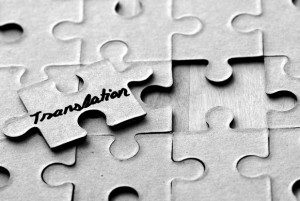WHAT MAKES A BAD TRANSLATION?
- María Palomares Tarí

- 20 jun 2023
- 2 Min. de lectura
What happens when translation is done the wrong way? Edith Grossman, the translator into English of Gabriel García Marquez and Mario Vargas Llosa and the latest and much-praised version of Don Quixote (2003) has it very clear:
“Literal word-for-word, getting trapped into the literalism of thinking you’re being more accurate or more faithful if you do that, and of course you’re not. Translations aren’t made with tracing paper, and two languages do not fit into the same space at the same time, so there are adjustments and changes to have to make to turn one language into another language”
What makes a bad translation?
The importance of good, high-quality translation is obvious, but sometimes it is even more when things go wrong. You've probably read signs, menus, or website copy with translation mishaps so bad they’re even amusing. But it is a very serious matter, specially for the company that made the specific error and has now to pay the costs of it!
Here are some of the elements in common we can find in what we call a ‘poor translation’
Contains errors in grammar, spelling, or punctuation in the target language (proofreading is essential to correct errors and ensure consistency);
Sounds unnatural or awkward in the target language (human touch is always essential);
Fails to convey the meaning of the original text accurately;
Changes the tone or style of the original;
Uses inappropriate or outdated terminology;
The choice of the right language service provider is also a huge decision with lasting consequences. If this language provider is not reliable, this lasting consequences can turn out to be really negative: confusion, or even offense among customers, lost of opportunities or sales, legal liabilities… the list is endless! Besides, reworking and fixing the translation error or the whole translation can add significant costs to a company’s budget!
In a key passage of Why Translations Matters she says: “Translation expands and deepens our world, our consciousness, in countless indescribable ways.” At YOKO, we couldn’t agree more: languages are of strategic importance for people and the planet, and translation (good translation) brings cultures and nations together by facilitating dialogue, understanding and cooperation.
Need reliable translation services? Reach out to us!









Comentarios